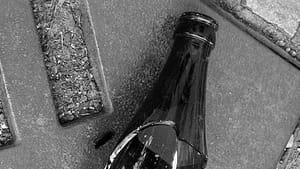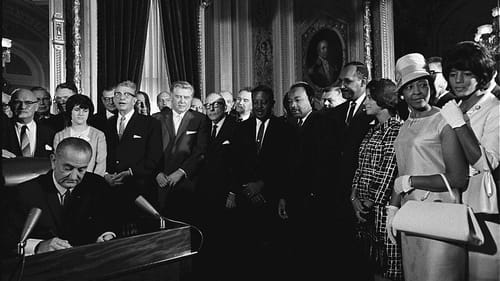Stay in the Loop
BSR publishes on a weekly schedule, with an email newsletter every Wednesday and Thursday morning. There’s no paywall, and subscribing is always free.
I'm complicit
This is what white supremacy looks like

Last week, after the BSR newsletter went out, I got the kind of email that, upon first reading, makes any editor’s guts curdle.
It was from one of our subscribers, Philadelphia poet M. Nzadi Keita, a woman of color. She wrote, “You’ve done the publication a serious disservice and deeply insulted readers like myself with your March 6 headline that uses the oh-so-repulsive, supremacist American phrase ‘white lie.’”
“Tone-deaf whiteness operates in your word choice,” she continued, “blatantly oblivious, entirely hegemonic, and conveniently blindered to language” that upholds the idea of “white-is-right/innocent/pure.”
She recommended I use my platform to make a “corrective note,” as an “effective consciousness-raising project.”
Deep breath. I thought for several minutes, and then hit “reply.”
“You’re absolutely right,” I said.
Chasing the “white lie”
Maybe you’re asking the same question I did: does the phrase white lie, which I used in last week’s newsletter, have racist roots?
Last year, lexicographer Kory Stamper (the author of Word by Word: The Secret Life of Dictionaries) was quoted in Psychology Today about the meaning and origin of the phrase white lie.
It “most often refers to a minor falsehood, usually to maintain the social order, spare people’s feelings, or make a person look better than they are,” she says. The first known use of the phrase on paper was in England, in a letter dated April 10, 1567, in which it’s used to mean that the teller of the “white lye” had good intentions. This goes back to one of the earliest meanings of the word white: "innocent" or "pure."
The choice
So I could insist that white lie is not inherently a racist phrase; my intention in using it was therefore not racist, and anyone who says otherwise is being too sensitive and should leave me alone.
Or, I could listen to Keita’s point, which she summed up this way: “As if anything white is unquestionably innocent, forever and ever, amen.”
And there is Keita’s solid truth: Language that knowingly or unknowingly perpetuates the idea that white equals "innocent" or "harmless" is directly harmful to people of color—just like parallel traditions of language that cast things that are dark or black as naturally bad.
If I were to argue about etymology and good intentions instead of acknowledging this truth, it would be a textbook case of white fragility—which I’ve been thinking about a lot this winter, as I read Robin DiAngelo’s White Fragility: Why It’s So Hard for White People to Talk About Racism.
“White fragility is much more than mere defensiveness or whining,” DiAngelo writes. “It may be conceptualized as the sociology of dominance: an outcome of white people’s socialization into white supremacy and a means to protect, maintain, and reproduce white supremacy.”
In other words, it’s not just petty what-about-ism or ruffled feathers. It’s all the ways we live our lives and speak our words that consciously or unconsciously reinforce the fallacy that white people are superior to all others—and then the ways we deny that we’re even doing it.
In this case, my white fragility shows up because I never considered that a phrase like white lie could perpetuate harm against people of color. My whiteness insulated me from having to think about it. What’s more, I benefit from implicit “white = good” idioms. I could have written harmless lie or any of dozens of possible choices—English has plenty of words in it.
True or false?
In the spirit of working through my racism, let’s play some White Fragility True or False, using my own experience.
- Keita is attacking me.
FALSE. Keita is taking her valuable time to point out my problematic language and opening a necessary dialogue. In fact, people of color who point out elements of white supremacy to white people are the ones at risk of attack. When she wrote to me, Keita risked dealing with my defensiveness, anger, or other manifestations of white fragility—on top of the offense that I caused in the first place.
- Keita is just one person. I can apologize privately to her or simply ignore her message.
FALSE. Keita is pointing out a historical, systemic truth that affects many people—which means that my publicly correcting myself isn’t about satisfying a single individual or responding to her experience alone.
Here’s how she put it to me:
I do not speak for every person of color on this note, but I can assure you that for millions of us, generations of us, families of us, communities of us, there is nothing harmless about any thing, or any speech act, or any practitioner of speech... because it carries the prefix 'white.' And I'm equally certain that some white people would also object.
- If I or my words are racist, that makes me a bad person—and if I admit this publicly, everyone else will know I’m a bad person.
FALSE. I need to take my feelings out of what DiAngelo calls “the good/bad binary.” After the civil rights movement, DiAngelo explains, rules like “whites-only” water fountains became socially unacceptable; being a moral person and being a racist became mutually exclusive concepts. “You could not be a good person and participate in racism; only bad people were racist.” And right on up to today, if someone suggests that you or your actions are racist, it’s “a deep moral blow.”

When white people like me feel that blow, we want to defend our own character rather than face the realities of the racist system that’s conditioned us, and in which we are complicit. So the problem continues, because “if we cannot discuss these dynamics or see ourselves within them, we cannot stop participating in racism.”
- Writing and publishing this might be hard, because some people (especially my fellow white people) might privately or publicly call it nonsense, say I’m a perpetrator of “reverse racism,” or criticize me for giving my experiences space in BSR.
TRUE. But if any of those things happen (as they have in the past when I’ve written about misogyny and racism), any distress this causes me is not important, compared to the opportunity to interrupt the harm that many people of color experience every day.
- I’ll probably experience discomfort, embarrassment, or shame about this again.
TRUE. I’ll keep learning about how to end my complicity in racism and use my platform to combat racism; I’ll make mistakes; I can be open to productive criticism; I can be accountable. Genuine antiracist learning and work necessarily open up a lot of raw, painful, or surprising thoughts and feelings that challenge the status quo.
Onward
Another hallmark of white fragility is believing that people of color, just by living their lives, are naturally able and willing to educate white people about racism. In reality, it’s not the responsibility of folks like M. Nzadi Keita to educate me—but in this case, she generously did (and allowed me to quote her here). And BSR is better for it.
If you want to keep learning along with me, there are plenty of resources from folks who have publicly dedicated themselves to antiracist education, and I find that people of color, especially cisgender women and nonbinary or trans folks of all genders, often lead the way (as they have been doing not for years or decades but for centuries). For a good start, I recommend Rachel Cargle, L. Glenise Pike’s Where Change Started platform, and Ericka Hart.
Sign up for our newsletter
All of the week's new articles, all in one place. Sign up for the free weekly BSR newsletters, and don't miss a conversation.

 Alaina Johns
Alaina Johns